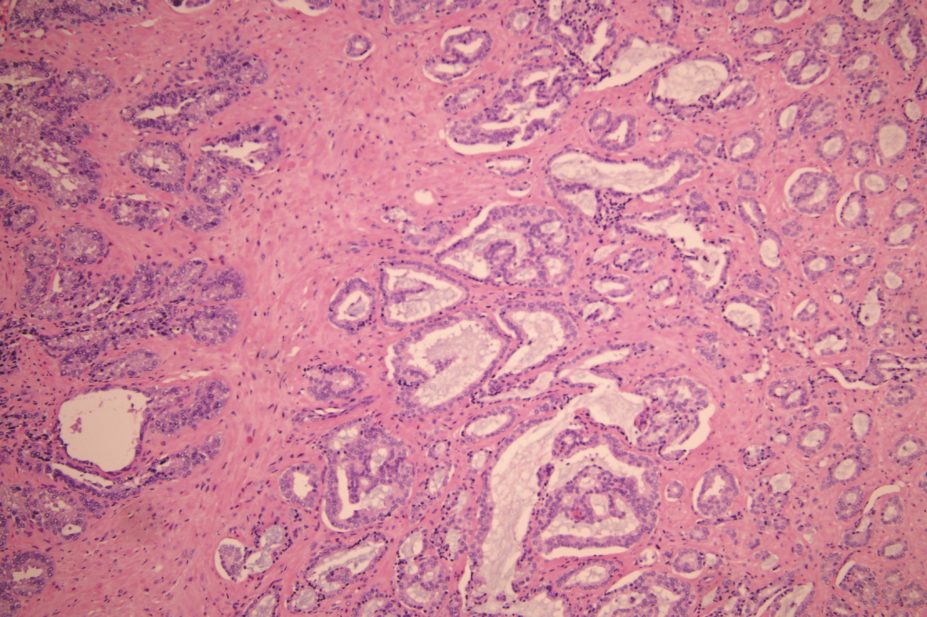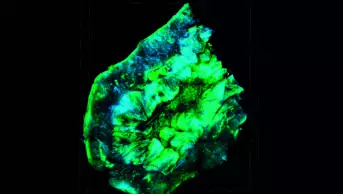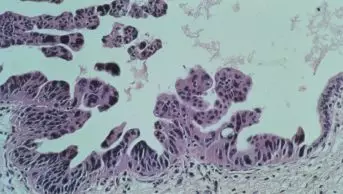
James Heilman, MD / Wikimedia Commons
Researchers have found a way to use prostate cancer cells’ voracious appetite for copper as a weapon to kill them.
The study on animals, published in Cancer Research
[1]
, has demonstrated that delivering copper, along with disulfiram, targets and eradicates copper-laden prostate cancer cells, while leaving non-cancer cells intact.
With hormone therapies generally ineffective in curing this condition, it made sense to try another strategy tied to prostate-cancer tumours’ proclivity for copper. Donald McDonnell, chairman of the Duke Department of Pharmacology and Cancer Biology, and the study’s senior author said the study had two stages. In 2010, using this hypothesis as a starting point, his team tried to starve the tumours’ cells of copper, but were unable to deplete enough of the mineral to be successful. So they flipped their approach.
The group screened thousands of FDA-approved medicines, searching for those that needed copper to be effective. One that stood out was disulfiram, a drug typically used to treat alcoholism and which had once been considered as an anti prostate cancer drug. When used in clinical trials among patients in an advanced stage of the disease, disulfiram alone had yielded disappointing results. McDonnell’s team surmised previous clinical trials may have been missing enough copper to fuel disulfiram into prostate-cancer attack mode.
“When we injected the supplement copper chloride into mice with advanced prostate cancer – to take advantage of their cancer cells’ seeming need for copper – the tumour cells engorged themselves with the mineral and, in turn, the disulfiram had the copper fuel it needed to work,” says McDonnell.
“The combination resulted in dramatic reductions in prostate tumour growth in the animals.” McDonnell also notes that, because androgens, the male hormone that fuel prostate cancer, increase copper accumulation in these cancer cells, the disulfiram and copper combination might prove especially beneficial for prostate cancer patients who had disappointing results while on hormone-therapy medication.
The Duke team anticipates going to human clinical trials within six months with patients in late-stage disease, using two separate oral doses of a copper supplement and disulfiram. “After we’ve proven the clinical efficacy of this combination, as well as demonstrated the optimal oral dosages and timing of the delivery of the copper, we believe there will be an impetus to prompt a drug company to proceed with developing a single capsule,” says McDonnell.


